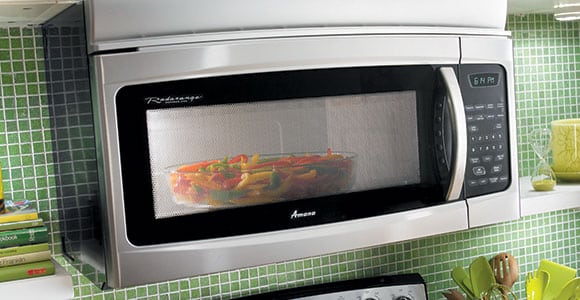Replacing ovens, ranges; other tips
Dear Jim: I’m updating my kitchen appliances. I am a bit of a chef, so I want efficient tools. What are the best appliances for cooks? Can you share a few energy-efficient cooking tips? — Barb R.
Dear Barb: If you’re a frequent cook, you consume a lot of energy. The major energy-user is the refrigerator. Odds are if you prepare a lot of food, you have a large refrigerator and open it often. Place commonly used items (milk, butter, etc.) near the front of your fridge. Keep the fridge fairly full; use water jugs if needed.
In addition to selecting efficient cooking appliances, there are simple tips to cut your energy use. Keep in mind that cooking tips change from winter to summer. During winter, the heat and humidity from cooking help warm your house and reduce the heating load on your furnace or heat pump. During summer, this same heat makes your air conditioner run more, increasing electric bills.
When installing kitchen appliances, locate them properly. The cooking range and oven should not be directly next to the refrigerator. Their heat makes the refrigerator compressor run longer. Also, don’t put the range or oven under a window; a breeze can carry away heat before it gets into your pots and pans.
The most efficient electric range heating elements are induction units. These elements produce magnetic energy that warms magnetic (usually iron and steel) pots and pans. If there is no utensil on an induction element, the element does not get hot. Induction elements provide heating control almost as precise as gas burners.
Induction elements offer an energy advantage: Nearly all of the energy goes into the pot or pan to heat food. With a regular resistance element, the heat transfers from the range top to the base of the pot. A lot of heat is lost to the air before getting to the food.
Since you do not always want to use magnetic cooking dishes, your range should have only one or two induction elements. The others should be standard resistance or halogen. Halogen elements heat up faster but are not as efficient. Opt for different sizes, then match the size of the pot to the element size for less heat loss.
When it comes to ovens, electric is preferred by most professionals. It holds more even heat than gas for baking. Another advantage, especially during summer, is that electric does not introduce extra moisture to your house. Extra moisture means more work (and energy use) for your air conditioner. When gas or propane burns, the basic products of combustion are water and carbon dioxide.
A convection oven saves energy as compared to a standard oven. Even though the small air circulation fan uses some electricity, because a convection oven cooks so much faster, there are significant overall savings. Not all foods roast and bake well in the convection mode, so you will not be able to use it for everything. Choose a self-cleaning oven model because it often has heavier wall insulation needed for the super-high cleaning temperature.
Want great energy savings in the kitchen? Use small countertop appliances when possible. For example, a small toaster oven, especially one with a convection option, uses significantly less electricity than large oven elements. This is true even though the large oven has more wall insulation. Countertop electric woks, rice cookers, etc., are other good examples. During summer, use them outdoors to reduce indoor heat.
Microwave ovens are still the most efficient appliances for cooking individual food items. They run on lower wattage and offer short cook times. If you are cooking larger quantities of food, a large oven remains the best choice. Plan your baking to simultaneously make foods that require similar baking temperatures or prepare them consecutively while the oven is hot.
Have a question for Jim?
Send inquiries to James Dulley, The Tennessee Magazine, 6906 Royalgreen Drive, Cincinnati, OH 45244, or visit www.dulley.com.



